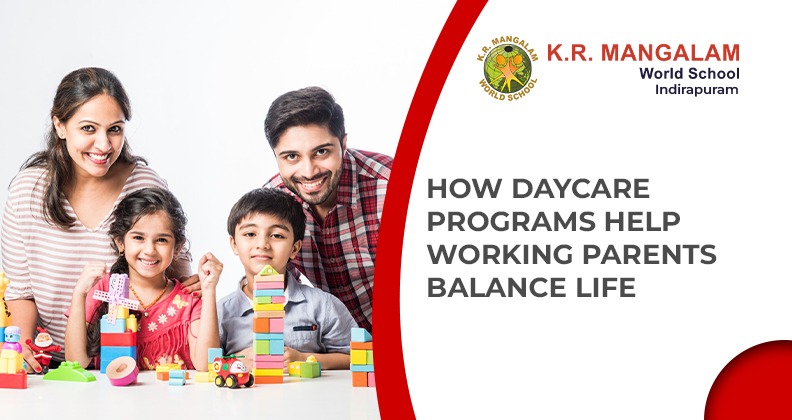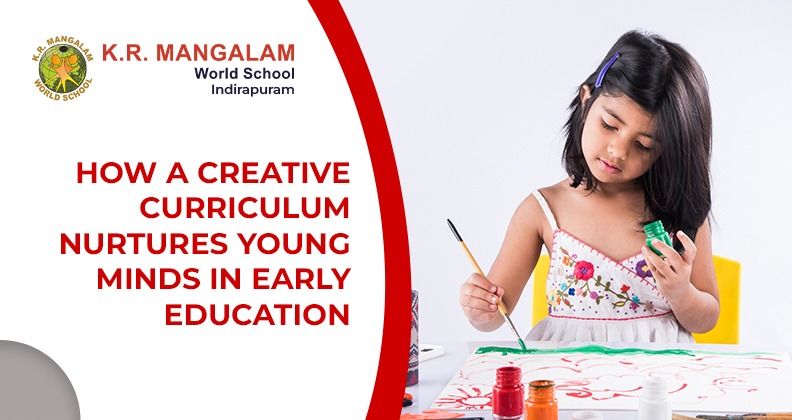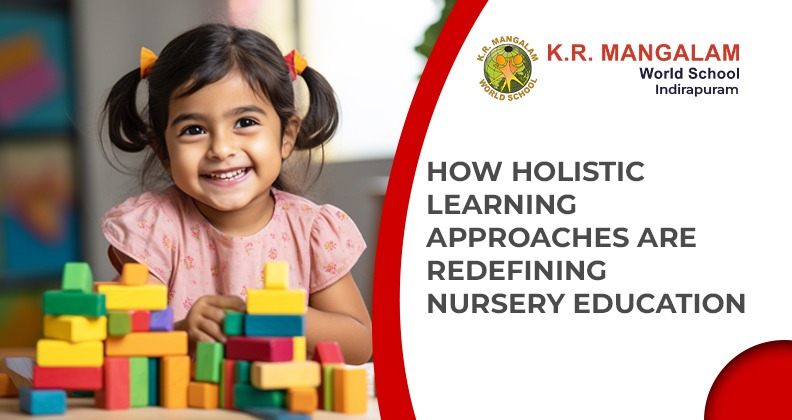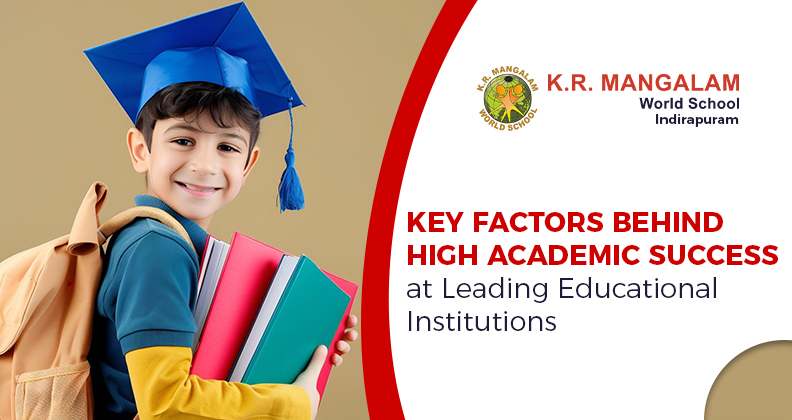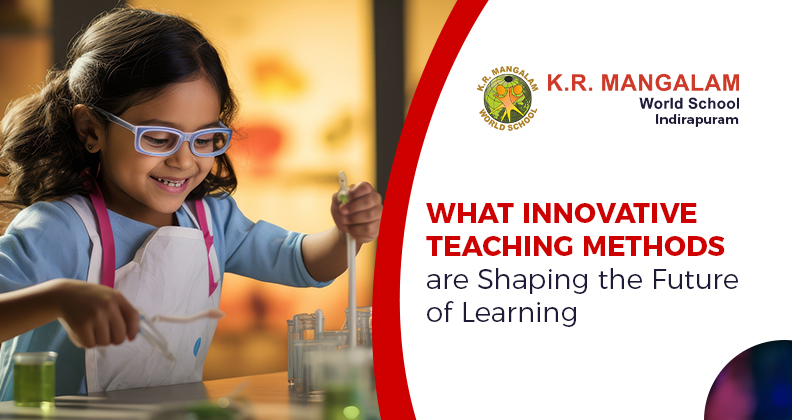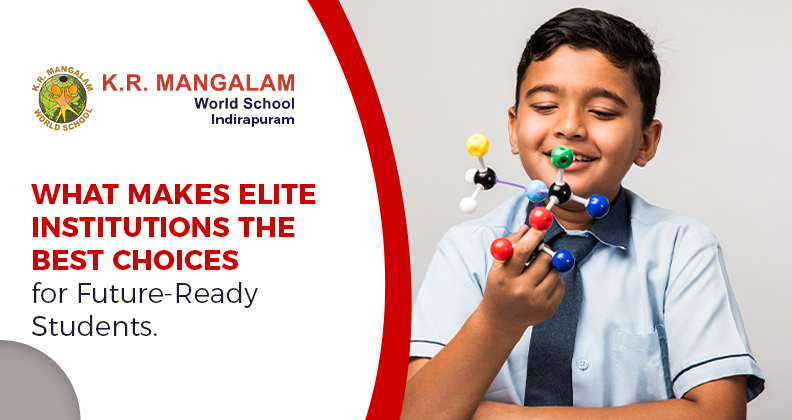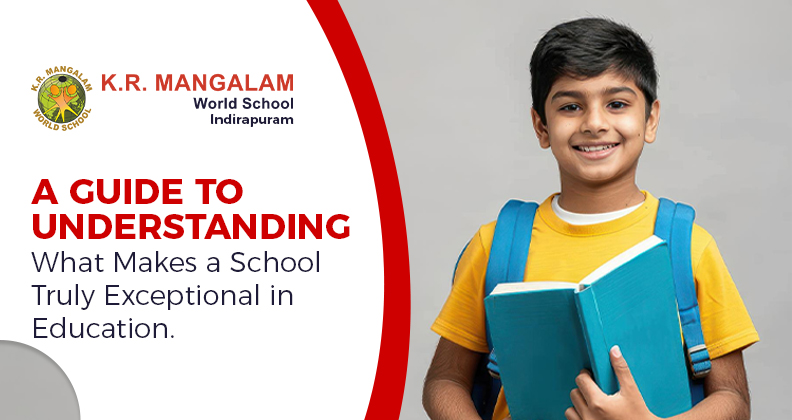Introduction:
When it comes to selecting the school, parents are no longer just focusing on academic scores alone. At K.R. Mangalam Indirapuram, the Best School in Vasundhara where the modern education landscape has shifted its core focus toward nurturing students in a holistic manner, ensuring they develop academically, emotionally, socially, and physically. This guide explores how top institutions create an environment that promotes all-round development, what parents should look for, and how such schools set the stage for lifelong success.
About Us:
We believe in nurturing every dimension of a child’s growth—academic, creative, physical, emotional, and social. With dynamic experiential learning, STEAM-infused projects, pastoral care, and student well-being at its core, the school offers a balanced environment where young learners flourish. From outdoor games like football, basketball, and athletics to indoor pursuits such as chess, skating, and creative studios—each activity is thoughtfully designed to refine skills and build confidence.
Signature programmes like “Beyond Boundaries” and “Personality Development” ensure students absorb theoretical knowledge while engaging in meaningful real-world experiences. Regular cultural fests, heritage weeks, and parents’ day celebrations bring the learning community together, showcasing talent and fostering connection. Our holistic vision ensures children grow excitedly toward tomorrow—with curiosity, resilience, and a love for learning.
-
Understanding the Concept of All-Round Development
All-round development is a progressive approach in education that prioritizes the balanced growth of children in every aspect of life. It goes beyond textbooks and examinations to include:
- Academic Excellence: Building a strong foundation in core subjects.
- Personality Development: Boosting confidence, leadership, and critical thinking.
- Physical Well-being: Through sports, fitness, and outdoor activities.
- Creative Exploration: Encouraging arts, music, dance, and theater.
- Social Responsibility: Instilling values like empathy, teamwork, and respect.
- Life Skills Training: Preparing students for real-world challenges.
A school that offers this balance becomes a stepping stone to success—not just in careers, but in life.
-
Why All-Round Development Matters in Today’s World
The future demands individuals who can adapt, innovate, and communicate effectively. With industries evolving at lightning speed, employers seek people with not just academic knowledge, but also emotional intelligence, teamwork skills, and creative problem-solving abilities.
Here’s why this approach is crucial:
- Builds Confidence – Students learn to express themselves without hesitation.
- Enhances Adaptability – Children develop the ability to handle new challenges gracefully.
- Promotes Mental Well-being – Balanced exposure reduces stress and burnout.
- Encourages Lifelong Learning – Students stay curious and motivated even beyond their academic years.
-
The Role of Academics in Holistic Development
Even in an all-round model, academics form the backbone of a child’s journey. Top institutions ensure:
- Curriculum Diversity: Integration of modern subjects like coding, AI, and environmental studies alongside traditional disciplines.
- Interactive Learning: Moving away from rote memorization to hands-on, experiential methods.
- Individual Attention: Personalized learning plans that cater to each child’s pace and potential.
- Regular Assessments: Constructive feedback mechanisms that focus on improvement, not just grades.
This academic environment ensures students remain competitive while avoiding the pitfalls of one-dimensional learning.
-
Importance of Co-Curricular Activities
Co-curricular activities bridge the gap between classroom education and real-world readiness. These may include:
- Sports and Athletics: From football to swimming, encouraging fitness and teamwork.
- Cultural Programs: Dance, music, and theater help in emotional expression.
- STEM Clubs: Robotics, science exhibitions, and innovation labs nurture problem-solving skills.
- Community Service: Involvement in social initiatives instills empathy and responsibility.
The school integrates these activities into the core timetable, ensuring they complement academic progress rather than compete with it.
-
The Role of Teachers and Mentors
Educators are the driving force behind a child’s holistic development. Leading institutions focus on:
- Well-Trained Faculty: Teachers with expertise in innovative teaching methods.
- Mentorship Programs: Guidance that extends beyond academics to personal and emotional growth.
- Regular Workshops: Training teachers to stay updated with the latest educational trends.
This approach helps create a nurturing environment where students feel supported at every stage.
-
Infrastructure That Promotes Growth
Top educational institutions invest in world-class infrastructure to ensure holistic growth. This includes:
- Spacious Classrooms: Designed for interactive and group learning.
- Sports Facilities: Fields, courts, and indoor arenas for a variety of physical activities.
- Innovation Labs: Equipped with the latest technology for research and experimentation.
- Well-Stocked Libraries: Fostering a love for reading and independent learning.
The physical environment significantly influences how students learn and develop.
-
Emotional and Social Development
A child’s emotional intelligence is just as vital as academic intelligence. Schools focused on holistic development offer:
- Counseling Services: Professional guidance to handle stress and peer pressure.
- Team-Based Projects: Encouraging collaboration and communication.
- Value-Based Learning: Teaching respect, discipline, and empathy as part of the curriculum.
By cultivating these skills, students become compassionate individuals ready to thrive in diverse environments.
-
Parents’ Role in Holistic Education
While institutions lay the foundation, parents play an equally vital role. Here’s how they can contribute:
- Encourage Curiosity: Support your child’s interests outside the classroom.
- Stay Involved: Attend parent-teacher meetings and monitor progress regularly.
- Promote Balance: Ensure time is divided among studies, play, and rest.
- Foster Positive Reinforcement: Celebrate achievements, both big and small.
This partnership between school and home creates a seamless support system for the child.
-
Key Features to Look for in a School
If you’re searching for the school, consider these factors:
- Comprehensive curriculum integrating academics and activities.
- Experienced and compassionate faculty.
- Strong emphasis on physical and emotional well-being.
- Safe, well-equipped campus.
- Transparent communication with parents.
- Focus on innovation and technology.
Such attributes ensure that students are prepared for a rapidly evolving future.
-
Preparing Students for Global Opportunities
Holistic education equips students with global competencies. Leading institutions integrate:
- International Collaborations: Student exchange programs and virtual global projects.
- Multilingual Exposure: Learning foreign languages to foster global communication.
- Global Citizenship Education: Teaching students to be responsible world citizens.
This prepares children not only to excel locally but to thrive internationally.
-
How Technology Enhances All-Round Development
In today’s digital era, technology is a powerful ally in education:
- Smart Classrooms: Interactive boards and digital tools enhance learning experiences.
- Online Learning Portals: Access to resources anytime, anywhere.
- Virtual Labs: Offering real-world experiments in a controlled environment.
- AI-Based Assessments: Personalized feedback to track growth and address gaps.
Schools adopting these technologies give their students a competitive edge.
-
Success Stories from Holistic Learning
Many renowned institutions have produced students who excel not only in academics but also in sports, arts, and leadership. Their alumni include:
- Entrepreneurs leading innovative start-ups.
- Athletes representing the nation.
- Artists showcasing talent on global platforms.
- Scholars pursuing research in reputed international universities.
These success stories demonstrate the power of an all-rounded approach.
-
Challenges Parents Face in Choosing the Right School
While the concept is attractive, parents often struggle with:
- Overwhelming Options: Numerous schools claiming to provide the best facilities.
- Lack of Transparency: Unclear information about teaching methodologies.
- Budget Concerns: Balancing affordability with quality education.
- Long-Term Vision: Determining whether a school’s approach aligns with future goals.
To overcome these challenges, thorough research and school visits are essential.
-
Steps to Ensure Your Child Gets Holistic Education
- Visit the Campus: Observe facilities, teaching style, and student interactions.
- Talk to Alumni: Get genuine feedback about the institution’s environment.
- Analyze Curriculum: Ensure it balances academics with life skills.
- Check Extracurricular Scope: Confirm the variety and quality of programs offered.
Being proactive ensures your child receives the best foundation possible.
-
The Future of Education – Beyond 2025
Education systems are evolving rapidly, with a clear tilt toward innovation and inclusivity. In the coming years, parents can expect:
- Greater Integration of AI and VR in teaching methods.
- Focus on Sustainability as part of core learning.
- Hybrid Learning Models blending online and offline methods.
- Personalized Growth Plans tailored for each student.
Choosing a school that adapts to these trends ensures your child remains future-ready.
Conclusion:
Selecting the school is not just about chasing high grades—it’s about finding an institution that nurtures your child in every dimension. At K.R. Mangalam Indirapuram, the Top Schools in Vasundhara where from academics and co-curricular activities to emotional resilience and life skills, a well-rounded approach builds confident, responsible, and future-ready individuals.
As a parent, your role is to evaluate these factors carefully and partner with an institution that shares your vision for your child’s growth. The right choice today can shape a lifetime of success tomorrow.
FAQs:
Q. 1: What does all-round development mean in education?
Ans : All-round development focuses on nurturing a child’s intellectual, physical, emotional, and creative abilities through academics, co-curricular activities, sports, and social engagement.
Q. 2: How do schools promote holistic growth beyond academics?
Ans : Schools integrate sports, performing arts, innovation labs, and life-skill workshops to ensure children develop confidence, leadership, and interpersonal skills.
Q. 3: What role do parents play in all-round development?
Ans : Parents enhance growth by participating in school events, encouraging extracurricular interests at home, and maintaining open communication with teachers.
Q. 4: Are co-curricular activities as important as academics?
Ans : Yes, they build soft skills like teamwork, creativity, and problem-solving that are essential for lifelong success.
Q. 5: How do schools track a child’s overall progress?
Ans : Many institutions use a blend of formative assessments, activity-based evaluations, and parent-teacher meetings to monitor development.
Q. 6: Can early exposure to multiple activities overwhelm a child?
Ans : Not if activities are age-appropriate and balanced with rest and free play, which most leading schools ensure.




